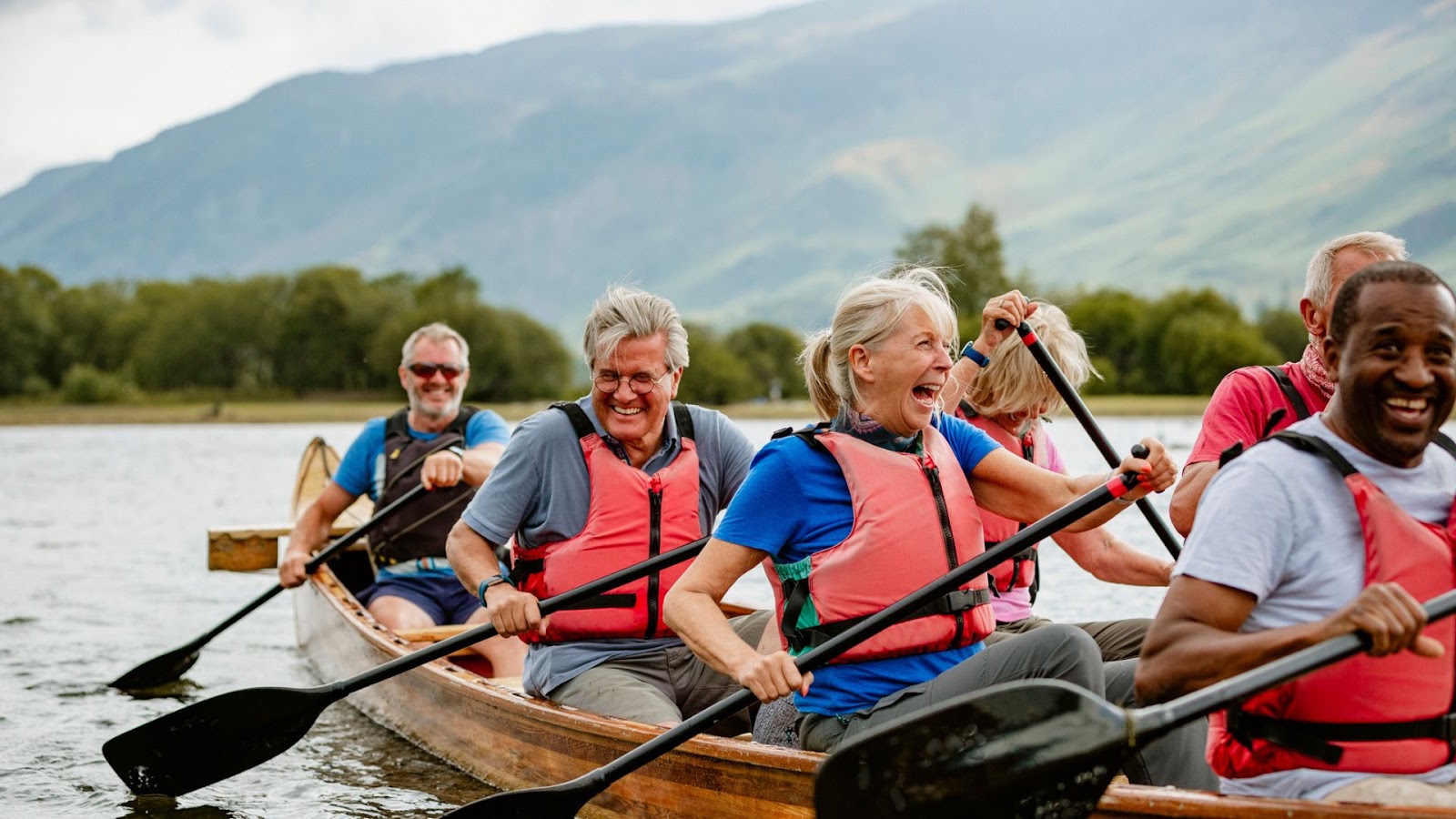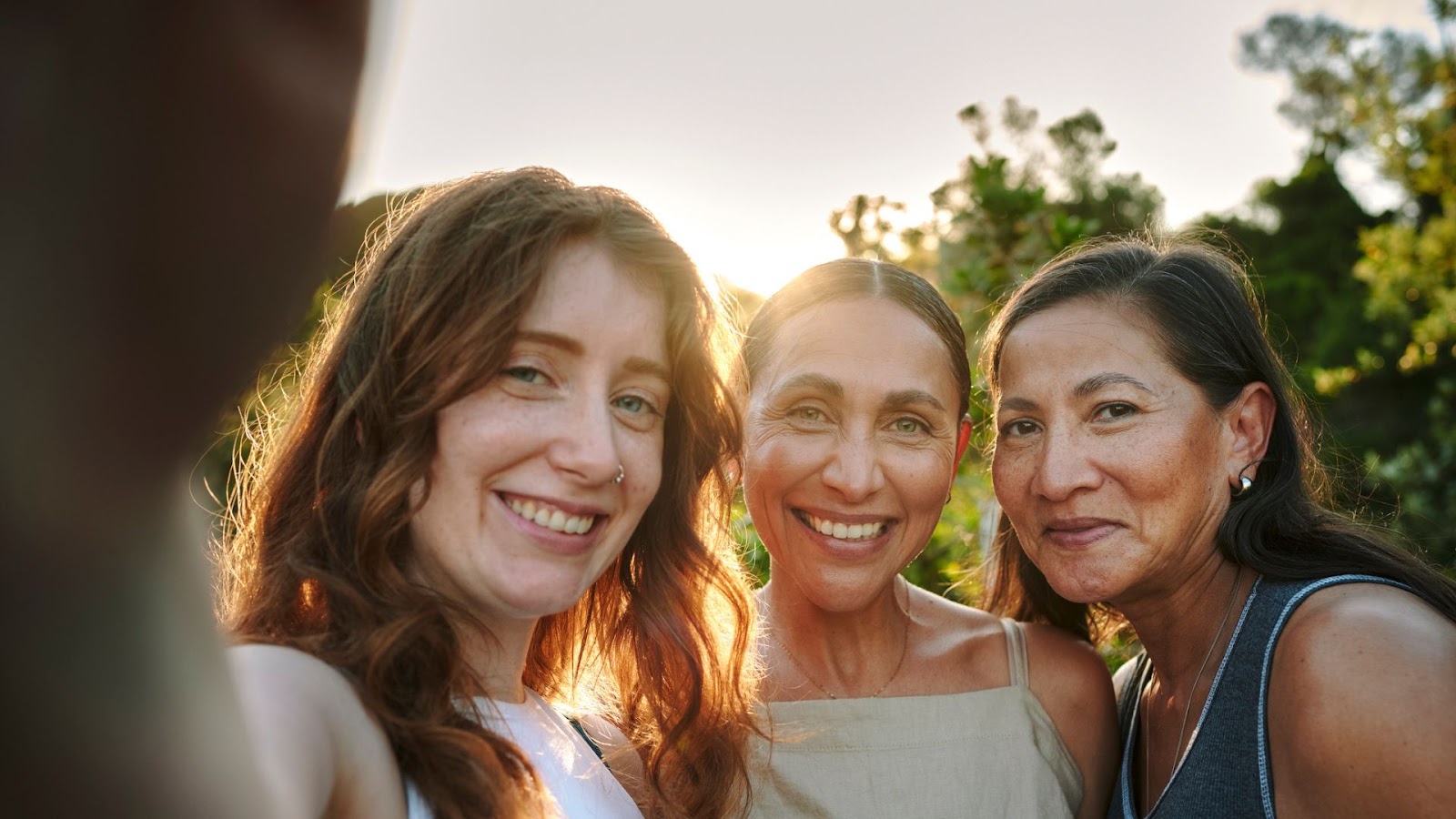Health
Mind matters: mental wellness in your 50s and 60s

Now is a great time to give your mental wellness some love. Here are some ideas to kickstart your fulfillment and zest for life.
By Rosalyn Page
Looking after our mental wellbeing is just as important as staying healthy physically. But sometimes illness, mobility changes or adjusting to new life stages can get in the way. There’s plenty we can do to stay connected and embrace change with a sense of purpose and possibility.
“There can be liberation in retirement, travel or reconnecting with passions, but also a growing awareness of ageing, illness, and mortality,” says Dan Auerbach, CEO and clinical director with Associated Counsellors & Psychologists Sydney.
This stage of life can bring emotional challenges to do with declining health, the loss of loved ones and the realisation that time is finite. “These can trigger anxiety, grief, or even depression if not well supported,” notes Auerbach.
Maintaining mental wellbeing during this time requires more than just staying active. “It’s about building emotional resilience, nurturing meaningful relationships and finding new purpose, whether through learning, mentoring, or giving back,” he says.
Emotional resilience in your 50s and 60s is less about “coping” in the traditional sense and more about evolving, according to Auerbach.
He suggests people who are struggling with any of these transitions seek support and strengthen their mental defences, which could include psychologist or counsellor.
“You don’t have to face it alone,” he says.
New possibilities bring new purpose
For some people, the second-half of life provides opportunities for change and self-development that can bring a renewed sense of purpose, satisfaction and joy that can bolster their emotional wellbeing.
Kym Power works as a wellbeing coach, often helping people in the public eye find their sense of self away from the glare of the spotlight and the rollercoaster of fame.
Some of these strategies apply for ordinary folk, starting with pinpointing personal beliefs about what’s possible in this stage of life. Asking yourself questions helps to unearth these underlying beliefs, says Power.
“What is your actual belief about ageing and do you believe you get better with age or worse with age?
“Who are your role models and what actions or behaviours do you exhibit that continue to back up and demonstrate your personal beliefs?”
Power acknowledges it can be confronting to ask yourself these questions, but it can challenge limiting beliefs and open the way to change your life.
“It's never too late to be who you really want to be and become a version of you that you're proud of, and if anyone tells you that it's not possible, start looking for role models and those that have done it,” she says.
Power explains this doesn’t need to be gruelling or a ‘hard fought’ slog. “Having a sense of perspective and with the right support and emotional safety, it’s absolutely possible.”
“It just takes courage to decide you’re worth it and want to change, even if you don't even know where to start or have tried a thousand times before.”
Becoming the elder, not just the older person
This phase of life is also about the power and importance of the ‘elder’, not just the older adult, according to Auerbach. It gives shape to the new roles open to people as they add not just years, but experience and the knowledge that comes with that.

“In many wisdom traditions, this stage is when a person transitions from the role of active doer to that of wise advisor or mentor — a person who has the ability to support others not through action, but through presence, perspective and discernment. It’s a shift from external achievement to inner authority,” says Auerbach.
Resilience comes through accepting a changing role that offers profound developmental opportunities.
“People in this phase often benefit from taking on different roles in familiar spaces, like becoming a trusted advisor instead of the one in charge. It’s about staying engaged, but with more reflection and less urgency,” he says.
“This is the quiet power of the elder: not the loudest voice in the room, but the one who listens differently, who holds space, offers perspective, and models a kind of calm groundedness that the rest of the community instinctively leans on.”
“Many people are entering what psychologists refer to as the ‘generative’ or ‘integrative’ phases of life where the task is not to prove oneself, but to deepen their inner life and find meaningful ways to contribute from a place of accumulated wisdom,” he says.
Find your mojo again
A strong sense of mental wellbeing can be cultivated through immersive, life-affirming experiences that can reconnect people with who they are, or their “mojo”.
Chelsea Ross, founder of Goddess Retreats, has witnessed a powerful shift happening in wellness in women in their 50s and 60s.
The transitions that women go through — menopause, career changes and less caring responsibilities — can open up space to pause, reflect, try new things and reconnect with joy.
It’s a chance to consider legacy rather than productivity, lean into community and connection, and prioritise wisdom and contribution.
“True personal change doesn’t always come from doing more, but from creating space to listen, reflect, and reconnect with who we are beneath the roles and responsibilities,” says Ross.
Whether it’s rejecting outdated narratives about this life stage, refusing to shrink into invisibility or becoming more curious and adventurous, Ross has observed women choosing to live fully and intentionally.
Through experiences that offer spiritual, cultural and physical connection, there are opportunities for emotional renewal, physical care and personal rediscovery.
“I think many of us have a chance, if we allow it, to have a … second wave of freedom, curiosity and possibility.
“Better still is that this time, it comes with all the wisdom we’ve gathered along the way,” she says.
Image: iStock/SolStock
The information on this page is general information and should not be used to diagnose or treat a health problem or disease. Do not use the information found on this page as a substitute for professional health care advice. Any information you find on this page or on external sites which are linked to on this page should be verified with your professional health care provider.
We think you’ll like:
